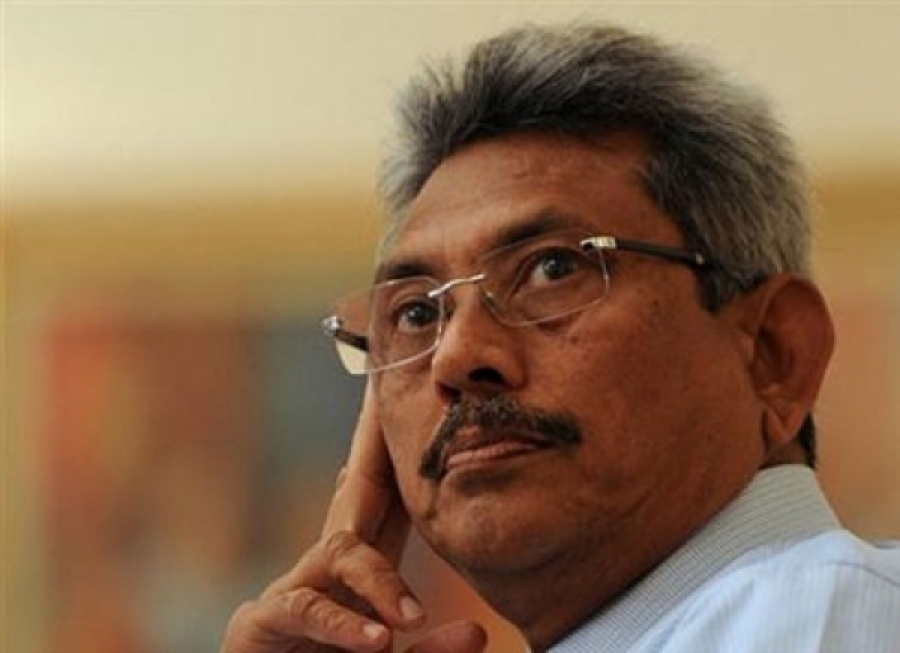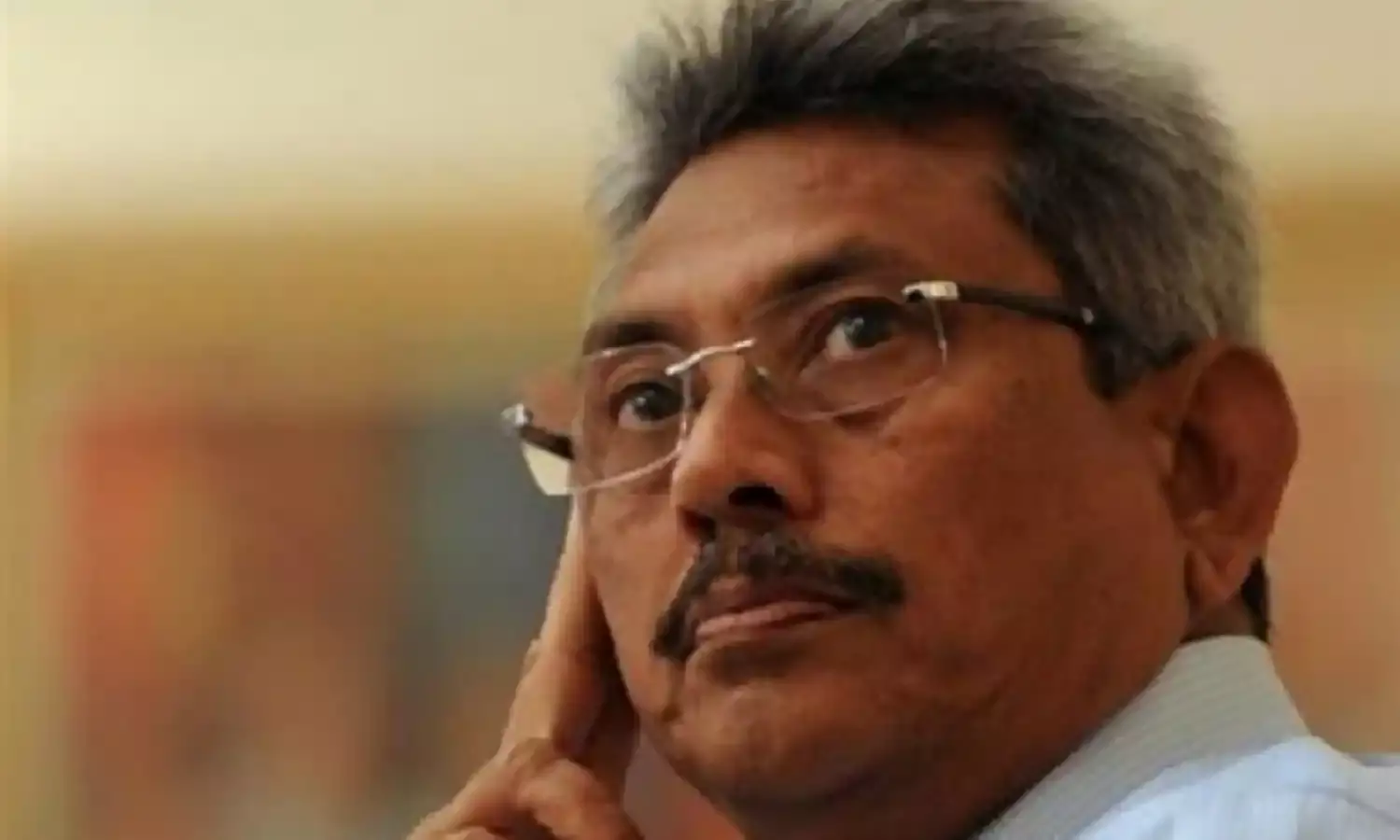Gotabaya Rajapaksa Government’s Popularity Has Plummeted
Lankan government is at odds with multiple stakeholders
Gotabaya Rajapaksa came to power through the November 2019 Presidential election with a thumping majority. His party, the Sri Lanka Podujana Peramuna (SLPP), secured a two thirds majority in the August 2020 parliamentary elections.
People had high hopes of rapid economic development under the stewardship of Gotabaya Rajapaksa, who was known for his development-orientation as well his no-nonsense military mindset.
But despite his awesome reputation of doing what his predecessors could not do (vanquish the dreaded LTTE as Sri Lanka’s Defense Secretary) and his reputation as an efficient administrator gained from his post-war stint as Urban Development Secretary, Gotabaya Rajapaksa has been found wanting as President of the country.
As a result, the SLPP is set to face an uphill task when elections are called for the nine Provincial Councils early next year.
With the SLPP’s political prospects looking dim, its parliamentary allies are becoming rebellious, threatening to break away and fight the coming elections independently if their demands are not met. Their basic demand is: consult us and take us into confidence as equal stakeholders in governance. But the President as well as the SLPP leader Basil Rajapaksa appear to care little for them.
The opposition Samagi Jana Balwegaya (SJB) led by Sajith Premadasa and the United National Party (UNP) led by Ranil Wickremesinghe are increasingly taking an aggressive stance on issues. School teachers and Principals are on the warpath, as are trade unions of the Ceylon Electricity Board and the ports. Prices of essential commodities have hit the roof, pinching the pocket of the common man.
Lankan farmers have been barred from using chemical fertilizers and pesticides and are forced to use organic fertilizers which are in short supply. According to one of the leading English dailies, in some cases, farmers have been reluctant to cultivate a good part of their lands due to uncertainty over availability of organic fertilizers.
The government caused severe anxiety in the tea industry (a major export crop) because of the ban on chemical fertilizers and pesticides. Later, reason dawned, and chemical fertilizers were made available to the planters.
Shortfalls in cultivation are bound to impinge on food security. The government has said that it will import food to make up for any shortage. But there is severe dollar crunch which does not make imports a panacea.
Organic fertilizers imported from China were found to have a harmful bacteria and the consignment was not allowed in. The Chinese government said that testing was not proper and demanded that it be done by a neutral agency in Europe. But on a court order, the State owned Peoples’ Bank stopped payment to the Chinese company concerned. The Chinese government then blacklisted the Peoples Bank. There was also a controversy over the efficacy and cost of the nano nitrogen fertilizer procured from India, but the issue has died down and nano nitrogen fertilizer is being imported without a hitch.
A deal with an American company New Fortress to set up a power plant using LNG is being opposed tooth and nail by the Ceylon Electricity Board workers who say that the deal is opaque, not in Sri Lanka’s interest in the long term, and will put on the backburner the national plan to go for renewable sources of energy within a given time span.
Electricity Board chairman M.C.Fernando’s plea that the terms of the deal with New Fortress cannot be revealed because of a secrecy clause has only added to the controversy. He also said that the deal has a political rationale which will not go down well with the people unless it is properly explained to them.
Electricity workers have threatened to cause a 48-hour island-wide blackout if the New Fortress deal is not abandoned but the President has reiterated that the deal is in the best interest of Sri Lanka.
The COVID-19 pandemic, which struck the island nation in early 2020 and is yet to go away, has been a major reason for the government’s poor performance. But the government’s poor handling of the health crisis and its economic spin off has been equally important. Too many cooks have spoilt the broth as far as health crisis management is concerned.
Multiple voices from the government and outside, and statements of multiple spokesmen of the government, have confused the people. Extended lockdowns, called at the insistence of medical professionals, brought the economy to a grinding halt, hurting the poor and the daily wage earners the most.
Shortages created by halts to imports and inter-provincial movement restrictions, were exacerbated by hoarders. At one stage, the government had to invoke emergency regulations to set matters right.
The government’s inability to take decisions after due consultations, the ad hoc nature of the decisions taken, a lack of clarity in decisions announced and an inability to implement decisions, combined to pull the economy down to the detriment of the common man.
President Gotabaya Rajapaksa has been taking decisions without consulting his ministers, his MPs and SLPP’s alliance partners. The army and other uniformed services were put in key decision-making and implementing positions, sidelining the civil service.
Army personnel’s methods of working and their mindset have turned out to be unsuitable for dealing with civil problems. Decisions were taken without a broad-based consultative process involving grassroots-level political functionaries, Ministers, MPs and party workers. Frustration is widespread though not publicly expressed.
The Lankan government had its ears to the ground when Mahinda Rajapaksa was President. It has now lost its touch with ground realities. Mahinda Rajapaksa constantly met people. He had an open house and encouraged people to open up. He did not shut himself in an office and issue orders. He maintained contact with every level of the political structure and the bureaucracy.
As Prime Minister now, Mahinda Rajapaksa is engaged in firefighting to the extent possible, but without upsetting the applecart. He has advised SLPP leaders to keep the minor parties in the alliance in the loop about government’s thinking and get them involved in decision making. “Those who stood by the SLPP during the elections, should not be disregarded,” he said. He has also pointed out that the youth are getting disillusioned and that the party should bring them back into the fold.
On the import of allegedly polluted organic fertilizers from China, which has soured relations with Beijing, Mahinda Rajapaksa had said that the government should agree to the Chinese proposal to get the samples tested at a neutral and well established testing laboratory in Europe.
Without prior consultation with the political apparatus available with the government, President Gotabaya Rajapaksa set up a Presidential Task Force to study and draft a law to being about "One Country, One law". But the 13-member Task Force has no Tamil or Christian representatives. And its Chairperson is the hardline, anti-Muslim Buddhist monk Ven. Galagodaaththe Gnanasara Thera. The minorities and liberals naturally fear that the Task Force will suggest measures entirely in tune with the political interests of the Sinhala-Buddhist majority.
And the PTF is likely to be very hard on the Muslims whose institutions it is expected to reform on priority. Since some of the Muslim institutions are rooted in Islam they are immutable. Therefore, there is bound to be resistance from the Muslim community.
Bishop J. Winston S. Fernando, President of the Catholic Bishops' Conference of Sri Lanka, has urged the President to repeal the gazette notification for the appointment of the Task Force.






